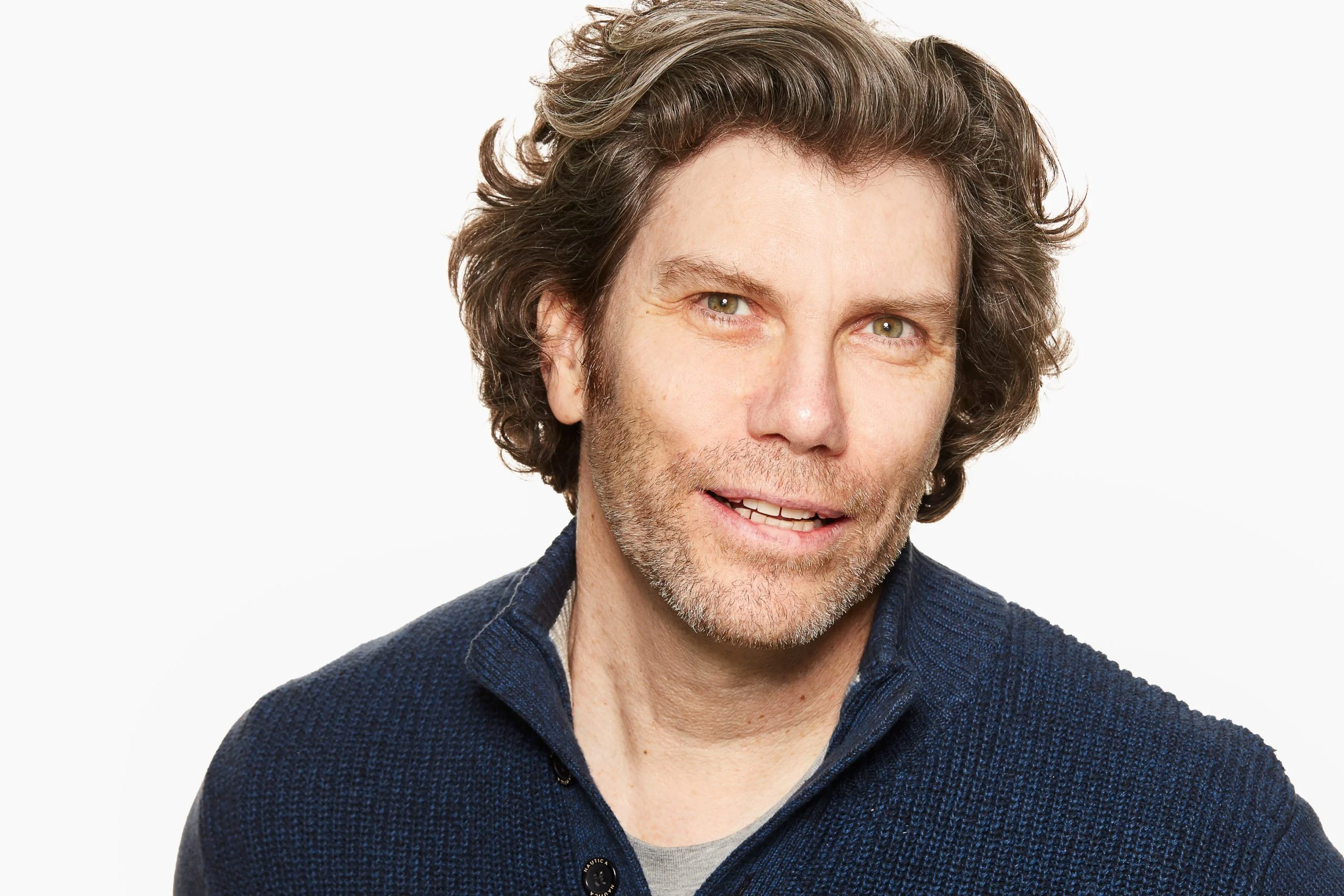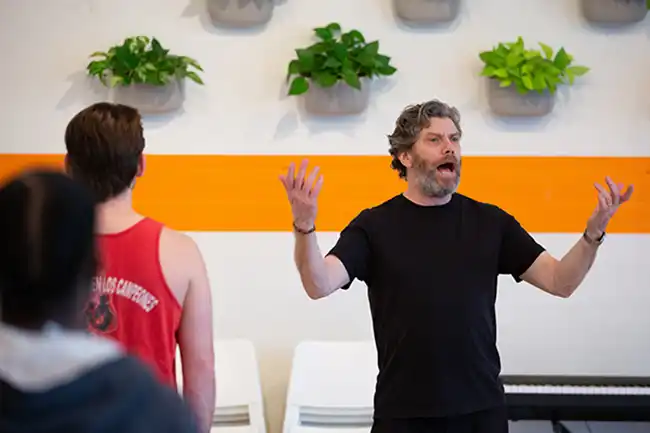
Matthew Dudley: A TKS Conversation
Matthew Dudley Talks About How Studying Voice Resonated With Him As A Teenager And Continues To Be The Focus Of His Teaching At The Terry Knickerbocker Studio; Not Simply Projecting or Controlling One’s Voice But Rather Freeing Oneself To Grow Through One’s Voice.
Matthew Dudley began studying voice as a teenager with Leslye Orr at the Children’s Theater Company in Minneapolis. He has continued to refine his fascination with voice as a Designated Linklater Voice Teacher, a Certified Colaianni Speech Instructor, and a Meisner-trained actor and voice-over artist. He approaches voice not as something to control but as a source of self-discovery, release, and growth. We spoke with him about his journey through voice and its continuing revelations.
TKS: You talk about voice as a source of self-discovery. Would you say more about that?
Matthew: Most actors sell themselves short by not training their voices to broaden their horizons. Voice training is not simply vocalizing; it is bringing the interior to the exterior. It’s about learning to reveal what’s going on emotionally on an impulse level, making available the full emotional range, through breath and vibrational resonance. It starts with identifying habits of tension or defensiveness that are limiting or diminishing – and removing those habits and those limits. It thereby opens up opportunities in acting that would not otherwise be realized.
TKS: You seem to be describing an instrument that can play more octaves than normally reached.
Matthew: To quote the late Kristin Linklater, “Actors’ voices must be wide and long and strong and tender enough to reveal the breadth and depth of the imagination.” It’s not just a question of playing louder or softer – reaching the back of the room, for instance. It’s a question of reaching your full potential to express yourself – enabling yourself to take on roles that you might not have thought were right for you.
TKS: When you talk of voice, you mean something distinctly different from speech. Is that right?
Matthew: Yes. To quote Kristin again, “Voice is universal; speech is cultural.” When voice enters into language, it becomes speech.
TKS: Did you approach studying voice initially as a way to enhance your acting?
Matthew: Absolutely. That was my focus. I studied voice in service of my acting. It was only later that I realized how much joy there is in helping other people with their own self-discovery. That’s when I turned to teaching voice as a career.
TKS: How did you come to teach at the Terry Knickerbocker Studio?
Matthew: I first met Terry Knickerbocker when he was teaching at NYU, and I was asked to substitute teach for a colleague of his. We stayed in contact, and when he decided to launch the Terry Knickerbocker Studio, he asked me to head up the voice training.
What has always impressed me about Terry is that he understands intuitively the connection between the Meisner technique and the Linklater approach. The two methodologies work especially well together for training actors, and we were both intrigued by the potential of linking them closely. Training that way can be foundational in providing an actor with a way of working.
TKS: You spoke of the joy of helping others in their self-discovery. Does that happen often in your classes at the Terry Knickerbocker Studio?
Matthew: Every day. That’s the fun of it: seeing my students realize potential they didn’t know they had. Seeing them grow through their training, not simply become more adept.
At the Terry Knickerbocker Studio, we are cultivating a community where students develop their daily practice of becoming actors, and I enjoy being part of that process enormously. I am intrigued by teaching actors. I believe that what I’m doing is advancing students’ capacity to act. The progression that students make through their voices is what makes the teaching so gratifying.

TKS: I see from your recent notices in TheaterMania and Broadway World, among other media outlets, that your teaching career gives you the flexibility to still act. Does that inform your teaching as well?
Matthew: Definitely. In fact, I joined that now-critically-acclaimed Off-Off-Broadway production of Othello by the New Place Players, specifically because it was produced by a friend who is also a voice teacher, and I wanted the experience of acting in a production that started at its core with an approach to voice. It was, therefore, very gratifying when the production was so well-received that it was extended for an additional month beyond its originally scheduled run.
TKS: Your approach to teaching voice resonates beyond the acting classroom. Would you say more about that?
Matthew: Just as actors can limit themselves by minimizing their voices, so too can people in other professions. I’ve helped facilitate workshops on voice for the World Economic Forum and Columbia Business School’s Senior Executive Program. Business leaders and other corporate executives have habits, as we all do, that limit how they express themselves, how they share their vision, how they motivate others and, therefore, limit their career potential.
What’s so exciting about teaching voice is that it gives people a way to experience their voice fully – to become aware of how their own habits inhibit their voice and where they can make changes to live out their voice, to free themselves through their voices. With actors, that awareness and development are fundamental to their job of inhabiting the lives of characters in stories.
That’s what makes the classes at the Terry Knickerbocker Studio so special. An actor’s voice is core to the expression of character. Helping an actor realize the true potential of voice is, therefore, helping that actor demonstrate the capacity to bring a character fully to life.